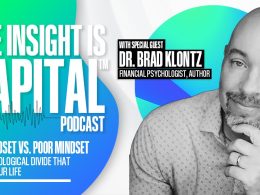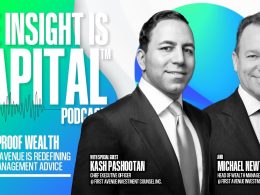by By Jon Lagerstedt and Todd Crawley, Wells Fargo Asset Management
Asset allocation and delegation of investment responsibilities are top of mind for clients in their 50s, 60s, and beyond.
[sc_embed_player_template1 fileurl="https://www.wellsfargofunds.com/mpg/epp/epp_20161222.mp3?_=1""]Jon Lagerstedt: This week we’re talking about helping clients in their 50s and 60s, and well beyond, address the realities of retirement. I’m Jon Lagerstedt.
Todd Crawley: And I’m Todd Crawley
Jon: And this is The Essential Practice. Todd, this is the third and final conversation we’ll have based on The Wall Street Journal article titled, “The Biggest Money Mistakes We Make—Decade by Decade.” In episode 243 we focused on the 20-something crowd and in episode 246 we discussed the groups that spans the 30s and 40s. As we address the needs of those in their 50s and beyond, everything really points to why it’s so important to establish a disciplined financial plan, as early as possible.
Todd: It is critical. You have that article in front of you. As you roll into your 50s, if you haven’t sort of had that discipline in the 20s, 30s, and 40s to start to save, that light at the end of the tunnel’s getting brighter and brighter—it’s called retirement—what now?
Jon: Yeah. And there are rules that govern how much they can tuck away at this stage in life.
Todd: Right, exactly!
Jon: There’s typically a catch-up provision for those older than 50. But when I look at the numbers, if you’re someone who hasn’t done a lot of investing up until your 50s, you could have a real challenge. Even with those catch-up provisions. And to your point earlier, this is when the emotional piece really starts to take place. Maybe in their minds they’re thinking, “I’m never going to be able to retire.”
Todd: Yeah, and I think maybe folks in their 50s are saying, “Oh my gosh, I don’t have enough money saved so I have to take a risk.”
Jon: That’s a great point. And the data that we reference in the article shows that baby boomers, which we think of as folks in their 50s and 60s, have 20 percent of their investment money in equities. And for the “silent generation,” the traditionalists, 22 percent are invested in equities. To your point, they could very well be trying to catch up. The difficulty there is if the market goes down, there’s a real issue to be faced.
Todd: Right. You don’t have the time to catch up.
Jon: And that brings us to the transition to the last decade which the article references, and that’s the 60s and beyond. One of the challenges that is drawn out in the article is this group having difficulty with delegating some of this financial responsibility and the different estate-planning components; everything that goes into these later stages in life.
Todd: We see it every day out here. A financial advisor, especially at this stage, is integral with not only the finances of the family but also in bringing that family together and helping them navigate those difficult decisions of elder care insurance, or having a financial conversation with the children, and estate planning—all of the things that come into play when you’re in your 60s and 70s. A great financial advisor is invaluable, being quarterback to put that picture together.
Jon: Yeah, and helping delegate those responsibilities so they are executed on in the right time frame with the right goals in mind.
Todd: Whether that be leaving a legacy, caring for a grandchild, caring for themselves, or, all of the above.
Jon: It doesn’t seem like it ever gets easier!
Todd: In your 20s you think it’s complicated, until you hit your 50s and 60s, then it gets really complicated!
Jon: Well Todd, we’ve covered several decades in three episodes—talking about the challenges people face and how a financial advisor can help them create a disciplined plan to work toward their financial goals. But let’s wrap up this edition here—in fact, this edition marks the end of our second year and it’s the last edition for 2016. Todd—can you believe yet another year has passed?
Todd: Yeah, no kidding!
Jon: For those of you listening, thank you for being with me, Todd, and Wayne Badorf—we’ve got much more to talk about in 2017. Until next time, happy holidays. I’m Jon Lagerstedt.
Todd: And I’m Todd Crawley.
Jon: And this is The Essential Practice.
Copyright © Wells Fargo Asset Management















